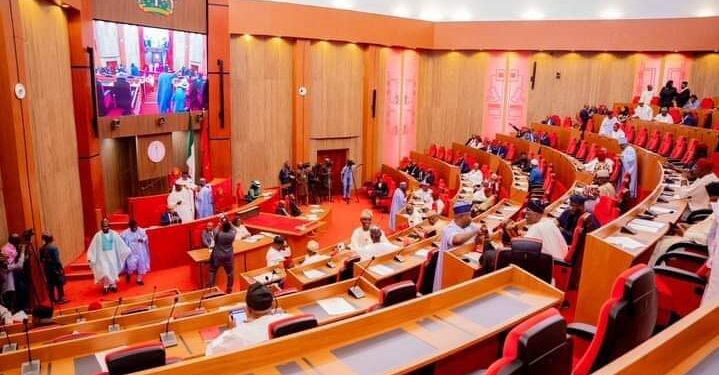The Academic Staff Union of Universities (ASUU) has strongly opposed a proposed withdrawal of the education tax from the Tertiary Education Trust Fund (TETFund), warning that the move could cripple Nigeria’s tertiary education system.
Speaking at a public hearing on the tax reform bills before the Senate Committee on Finance, ASUU President, Prof. Emmanuel Osodeke, cautioned that eliminating TETFund’s funding mechanism would severely impact infrastructure, research, and academic development across universities, polytechnics, and colleges of education.
“TETFund has been the backbone of infrastructural development and postgraduate training in public tertiary institutions for over 15 years. Without it, higher education in Nigeria could face a crisis,” Osodeke stated.
According to the Nigeria Tax Bill 2024, only 50% of the development levy will be allocated to TETFund in 2025 and 2026, with a gradual reduction until it receives 0% by 2030. The funds will instead be redirected to the Nigerian Education Loan Fund (NELFUND).
ASUU condemned this plan, arguing that replacing TETFund with NELFUND is akin to “killing a parent to keep a newborn alive.” The union urged lawmakers to reconsider, emphasizing that the intervention agency plays a crucial role in the entire education system.
Customs, Oil and Gas Sector Also Raise Concerns
The Nigeria Customs Service (NCS) also flagged conflicts between the tax bills and existing laws. Comptroller General Adewale Adeniyi pointed out contradictions between certain clauses in the Nigeria Tax Bill 2024 and the Customs Act 2023.
“We’ve seen a 97% revenue increase due to the modernisation of our tax laws. Repealing key provisions within just two years of implementation may be premature,” Adeniyi cautioned.
Similarly, the Petroleum and Natural Gas Senior Staff Association of Nigeria (PENGASSAN) warned that the proposed tax reforms could impose unintended burdens on the oil and gas industry. The association’s president, Festus Osifo, urged lawmakers to ensure that taxation policies do not discourage investment or threaten job security.
Religious and Constitutional Considerations
In a separate submission, the Nigerian Supreme Council for Islamic Affairs (NSCIA) called for revisions to sections of the bills that may contradict Shariah law. The council also suggested replacing the term “ecclesiastical” with “religious” to ensure inclusivity.
Senate Pledges Review
Responding to the concerns, Senate Committee Chairman, Sani Musa (APC, Niger), assured stakeholders that all feedback would be critically reviewed before the final reading of the bills.
With growing opposition from multiple sectors, the National Assembly faces mounting pressure to strike a balance between tax reforms and their broader economic, educational, and legal implications.
























